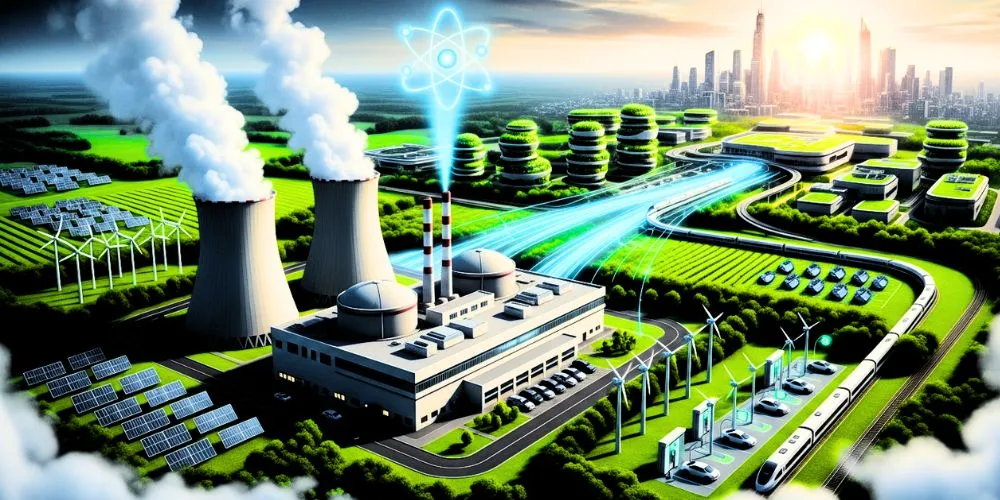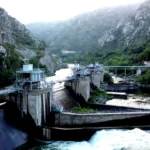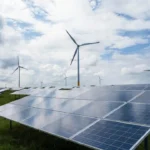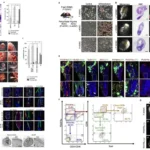Nuclear power plants have long been a prominent feature of the global energy landscape, offering a consistent and high-capacity source of electricity. Despite their controversial history, they continue to play a significant role in pursuing sustainable and low-carbon energy solutions. This comprehensive exploration delves into the world of nuclear power plants, uncovering their significance, working principles, applications, challenges, and transformative potential for a greener and more energy-efficient future.
The Significance of Nuclear Power Plants
Nuclear power plants represent a crucial component of the global energy mix, with several key attributes that contribute to their significance:
Low Greenhouse Gas Emissions
Nuclear power is characterized by its remarkably low greenhouse gas emissions. Unlike fossil fuel-based power plants, nuclear reactors do not produce carbon dioxide during electricity generation. This environmental advantage positions nuclear power as a valuable asset in mitigating climate change and reducing the environmental impact of energy production. Nuclear power plants support global efforts to combat climate change by generating electricity without contributing to the greenhouse effect.
High Energy Density
Nuclear fuel has an exceptionally high energy density, meaning that a relatively small amount of nuclear material can produce a significant quantity of electricity. This inherent efficiency allows nuclear power plants to generate large quantities of electricity consistently. Consequently, they serve as reliable baseload power sources, capable of meeting the constant demand for electricity. This feature is especially important for maintaining grid stability, ensuring a consistent power supply during peak usage.
Energy Security
Nuclear power provides a stable and secure source of energy. Unlike some weather-dependent renewable energy sources, nuclear reactors operate continuously, offering a consistent electricity supply even under adverse conditions. This reliability enhances energy security, reducing the risk of power shortages during extreme weather events or other emergencies. Nuclear power plants can serve as a dependable backbone of the energy grid, contributing to the stability of the energy supply.
How Nuclear Power Plants Work
Nuclear power plants operate on the principles of nuclear fission, which releases tremendous energy when atomic nuclei split.
Nuclear Fission
In a nuclear reactor, nuclear fission occurs when the nucleus of an atom, typically uranium-235 or plutonium-239, is bombarded by a neutron. This collision causes the nucleus to split into two smaller nuclei, releasing energy in the form of heat.
Heat Generation
The heat generated through nuclear fission is used to produce steam from water. This steam drives a turbine connected to a generator, which converts the kinetic energy from the turbine’s rotation into electricity.
Fuel Rods and Control Rods
Nuclear fuel is typically fuel rods, consisting of pellets of enriched uranium or plutonium. Control rods of materials like boron are inserted into the reactor to regulate the nuclear reaction by absorbing excess neutrons. This control mechanism allows operators to adjust the reactor’s power output and maintain safe operating conditions.
Applications of Nuclear Power Plants
Nuclear power plants find applications across various sectors, providing electricity for residential, commercial, industrial, and space exploration purposes.
Electricity Generation
The primary application of nuclear power plants is electricity generation. Nuclear reactors supply a substantial portion of electricity in many countries, contributing to grid stability and energy security. Their ability to generate electricity continuously makes them suitable for powering homes, businesses, and industries.
Industrial Processes
Nuclear power can also be harnessed for industrial processes, such as hydrogen production, desalination, and materials testing. These applications benefit from the high-temperature steam generated in nuclear reactors. The heat produced in nuclear reactors can be utilized in various industrial processes, reducing energy costs and emissions associated with these activities.
Space Exploration
Nuclear power sources, like radioisotope thermoelectric generators (RTGs), are used in space exploration missions. RTGs convert the heat generated by the radioactive decay of isotopes into electricity, providing long-lasting and reliable power for spacecraft and robotic missions to distant planets. These power sources are particularly valuable for missions to environments with less effective solar panels, such as outer planets and deep space.
Challenges and Ethical Considerations
While nuclear power plants offer numerous advantages, they also face challenges and ethical considerations:
Radioactive Waste Management
One of the most significant challenges associated with nuclear power is managing radioactive waste. Nuclear power plants produce spent fuel and radioactive byproducts that require secure storage and disposal solutions. The long-lived nature of some radioactive materials raises concerns about long-term safety and environmental impact. Ethical considerations center on ensuring nuclear waste’s safe containment and isolation to prevent harm to humans and the environment.
Nuclear Accidents
Nuclear accidents, such as the Chornobyl disaster and the Fukushima Daiichi incident, have underscored the risks associated with nuclear power. These accidents have had severe consequences, including releasing radioactive materials and environmental contamination. Ethical considerations involve ensuring plant workers’ and nearby communities’ safety and minimizing the potential for catastrophic events. Comprehensive safety measures, stringent regulatory oversight, and continuous monitoring are essential to ethical nuclear power operations.
Nuclear Proliferation
The spread of nuclear technology for peaceful purposes raises concerns about nuclear proliferation and the potential for weapons development. Access to enriched uranium or plutonium, as used in nuclear reactors, could pose security risks if not adequately controlled. Ethical considerations involve strict international controls and safeguards to prevent the misuse of nuclear materials, promote disarmament, and discourage the development of nuclear weapons.
The Future of Nuclear Power Plants
Nuclear power plants are poised to play a role in the future energy landscape, with several developments on the horizon:
Advanced Reactor Technologies
Advanced reactor designs, such as small modular reactors (SMRs) and next-generation reactors, aim to improve safety, efficiency, and fuel utilization. These technologies offer the potential for more flexible and cost-effective nuclear power. SMRs, in particular, are designed to be smaller and more scalable than traditional nuclear reactors, allowing for greater versatility in deployment.
Nuclear Fusion
Nuclear fusion, which powers the sun, holds immense promise as a virtually limitless and inherently safe energy source. Research and development efforts are ongoing to make nuclear fusion a practical and scalable energy source. If successful, nuclear fusion could provide a nearly boundless supply of clean energy with minimal radioactive waste and no risk of nuclear meltdown.
Waste Management Innovations
Innovations in nuclear waste management, including advanced reprocessing and recycling techniques, aim to reduce the long-term impact of radioactive waste and improve the sustainability of nuclear power. These innovations aim to reduce nuclear waste volume, extract valuable materials for reuse, and improve long-term storage and disposal solutions for radioactive materials.
Conclusion
Nuclear power plants are not just about electricity but about transforming the energy landscape in a sustainable and low-carbon direction. Their significance lies in their capacity to provide reliable electricity with low greenhouse gas emissions. As nuclear power plants evolve, ethical considerations, safety, and waste management must guide their development and implementation.
The future they envision is one where nuclear power contributes to a diversified and sustainable energy mix, safety and environmental concerns are addressed comprehensively, and the benefits of nuclear energy are realized without compromising ethical standards. Nuclear power plants are a crucial piece of the puzzle as we strive for a cleaner and more energy-efficient future. Through ongoing research, innovation, and responsible stewardship, nuclear power can play a vital role in powering a sustainable and electrified world.





